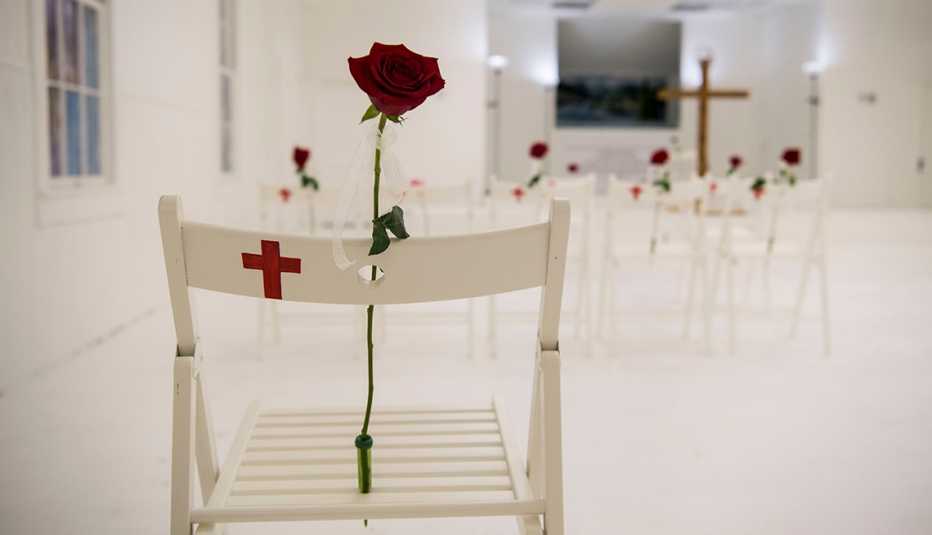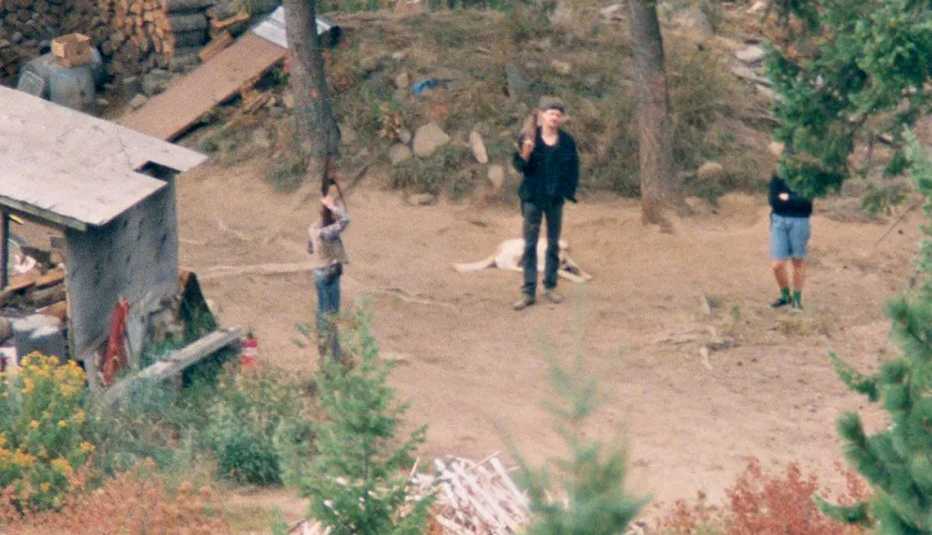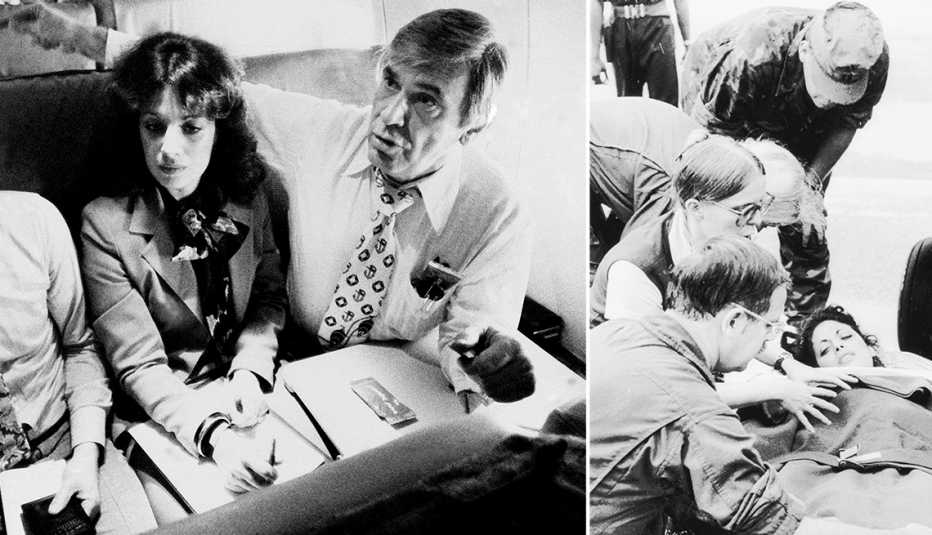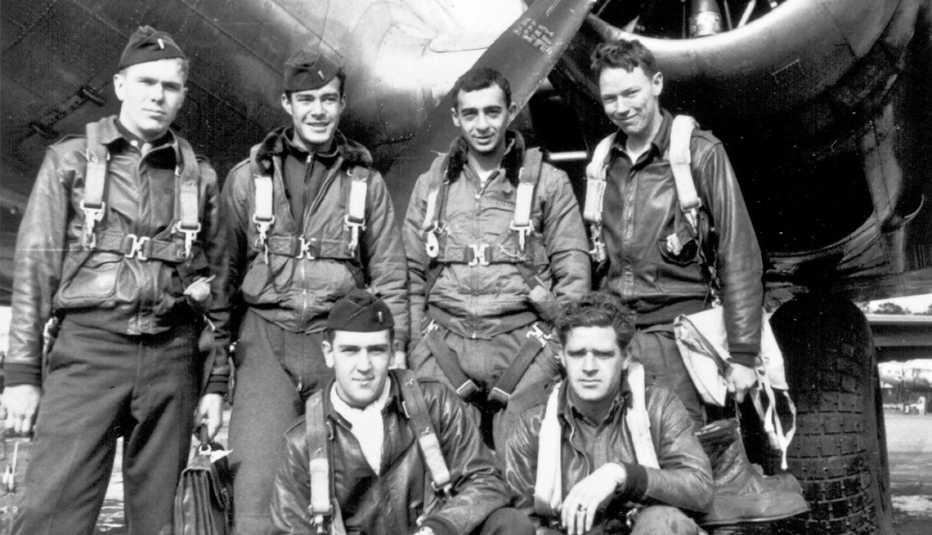AARP Hearing Center


Oklahoma City bombing, 1995
Amy Downs, 56, turned her life around after the domestic terrorist attack that killed at least 168 people.
The minute the bomb went off, I remember thinking my life was over. As a bank teller at a credit union, I at first figured I’d been shot to death by a bank robber. But I had fallen through three floors and was still upside down in my chair, buried under about 10 feet of rubble. Then I heard a distant siren and eventually some voices, and I just kept screaming until someone yelled, “We have a live one!”
As I lay there, thinking over my life, I had so much regret. I was 28, weighed about 355 pounds, and all I did was work, go home, watch TV, eat Cheetos, go to bed and do it again the next day. I had no drive. I was so complacent. I remember begging God for a second chance. It wasn’t easy. Back at work, 18 of our 33 employees had been killed. How could I even continue? But one day my boss came in and said, “If you had a magic wand, what would you do?” I thought, I wouldn’t be a victim.
I started using that technique over and over. I asked myself, Given my current situation and limitations, what can I do? Even though I’d flunked out of college, I wrote on an index card, “I want to go back to school.” I found a program that would accept me and eventually I got my MBA and graduated at the top of my class. Wow! What about my weight? Dieting never worked, so I researched gastric sleeve options. The doctor said that’s good for 75 pounds, but you need to exercise. I found a bicycle with tires big enough not to pop and started taking longer and longer rides until I rode across Oklahoma. I eventually lost 200 pounds. Cycling is also how I met my husband. At 45, I ran the Oklahoma City Marathon in honor of my best friend, who was killed the day of the bombing. When I turned 50, the same year I became CEO of the credit union, I knew I had to do something badass, so I competed in the Ironman triathlon. I finished last, but who cares? I did it! Now I want to ride my bike across the United States, and I’m still thinking about what else that magic wand might do.


Sutherland Springs church mass shooting, 2017
Julie Workman, 61, and her family survived the Texas church shooting that killed 26 people.
Everybody focuses on the horror of the shooting, but there are so many miracles that took place. People say, “Where was God?” Well, God was right there, because my son, Kris, took a bullet to the back that should have blown open his spinal column and left him bleeding to death on the church ground. And yet, a week after he got out of the hospital, he was back at church leading worship. He’s doing physical therapy to learn to stand and maybe even to walk again. Or what about me, taking a bullet to the chest that should have gone through my lung and caused me to suffocate. Somehow, at the angle it took, the bullet didn’t even penetrate my skin, even though I felt the blow. My younger son was fired at 28 times but was only grazed on his shoulder. My daughter-in-law has a bullet that was aimed at her femur. We have the X-ray of an intact bullet that stopped before shattering her leg. If that’s not God, I don’t know what is. So on days when I feel like having a pity party, I look around, I look up, I focus on the good.
We’ve been blessed. That’s not to say it’s easy. Even after five years, I have to work sometimes on finding love. I’m a fierce friend, but trust is a hard thing after something like this. The Bible tells us that we’re to love one another, but if you love, there’s liable to be more hurt. I tend to be more cautious now, more observant, a little more distant from people. Then I remember that to live a life abundant, you can’t live in a cocoon. You need to be social; you need to be in community. We need to be a light for one another. That’s my role now. So many people have walked up to me and said, “By hearing your story, and what you’ve been through, it’s deepened my faith.”
My faith deepens too. The miracles continue. The doctors told my son he probably wouldn’t be able to have children again without expensive medical intervention, and we didn’t have that kind of money. But God has provided us naturally with another child; I’m crying right now just thinking about it. They named him Ronen, which in Hebrew means “song of joy.” This little boy is a redemption gift from God.







































































More From AARP
I Survived the JFK Assassination
Secret Service agent Clint Hill endured one of the darkest moments in historyMarch on Washington Participants Look Back on Historic Day
For the 60th anniversary of the march, attendees share their memories of the nation-changing event
Kent State — and the Day That Changed America
The killing of four young protesters a half century ago had a profound impact on the nationRecommended for You